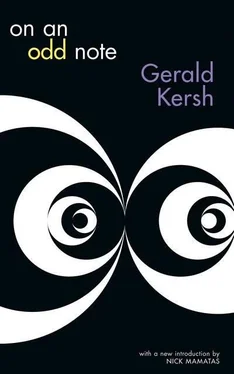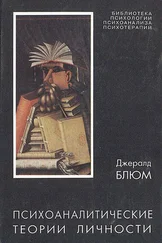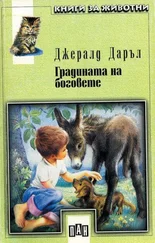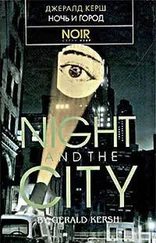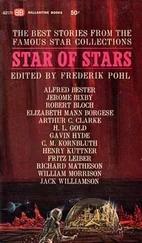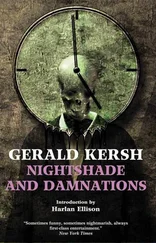“Sometimes. Or, sometimes, I did sewing, or read books.”
“Ah, you’re a great one for reading, Titania,” I said, “like your poor mother used to be. Why, Titania is a name out of a fairy story, isn’t it? A clever girl like you could read anything she could get her hands on, if she were locked up with nobody to talk to. I bet you read your poor brother’s old books, too. I remember noticing on the mantel-piece a bound volume of the Boy’s Own Paper . And also . . . now let me see . . . a book with a black and yellow cover entitled One Thousand Things a Clever Boy Can Do— is that it?”
She said: “Not Things ! Tricks .”
“And right you are! One Thousand Tricks a Clever Boy Can Do . And I’ll bet you mastered them all, didn’t you?”
She said, “Not all of them. I didn’t have the right things to do most of them with—”
“There’s one trick in that book, which I have read myself,” I said, “which you did master, though, and which you did have the right apparatus for, Titania, my dear. Tell you what it is. You get a medium needle and stick it down the center of a soft cork. Then you get a penny and place this penny between two little blocks of wood. Put your cork with the needle in it on top of the penny, and strike the cork a sharp blow with a hammer. The cork will hold the needle straight, so that it goes right through that penny. That’s the way you killed your poor Auntie Lily, isn’t it, Titania?”
Finishing the last of her meringue, she nodded. Having swallowed, she said, “Yes,” and, to my horror, she giggled.
“Why, then,” I said, “you must come back to London with me, d’you see, and tell my inspector all about it.”
“Yes,” she said, nodding. “Only you mustn’t tell Auntie Edith.”
I told her, “Nobody will do anything dreadful to you; only you must confess and get it off your poor little mind.”
Titania’s second cousin Edith, by courtesy called “Auntie,” came with the child and me to London . . . and there, in the police station, she flatly denied every word of everything, and cried to be sent home.
Put yourself in my position, stigmatized as a madman and a brute! I lost my temper, one word led to another, and I “tendered my resignation. . . .”
I shall never forget the sly expression on the girl Titania’s face when she went back with her Auntie Edith to Luton.
I have no idea what has happened to her since. She will be about thirty-eight or thirty-nine by now, and I should not be at all surprised if she had turned out to be quite a handful.
The Carpathians have always been the rocky-breasted wet nurse of somber and terrible fantasy. Dracula came out of these parts in which, as the peasants whisper, crossing themselves: “The dead ride hard.” Hungary, and Austria, have always been breeding grounds for vampires, werewolves, witches, warlocks, together with their bedevilments and bewitchings.
Psychoanalysis started in these parts. There are hundreds of professional psychologists (witch-doctors) from most other countries in the world who have studied under Freud, Jung, Adler, Groddeck, and the rest. Most of them go away with unblinking conviction: a species of owl stuffed with conjecture curdled into dogma. It is interesting, by the way, to observe that most of these fumblers in the dark are in a state of permanent nervous breakdown—an occupational disease you get when you try to take someone else’s soul to pieces and clean it and reassemble it. No man in the world ever emptied his heart and mind in an analyst’s office or anywhere else—only madmen try, who do not know what they are talking about; their candor is fantasy.
Anglo-Saxons ought to leave psychology to take care of itself. They break their hearts trying to make an exact science of what—considering the infinite permutations and combinations of the human mind—can never crystallize out of mere philosophy. In the end it all boils down to repetitive case-histories, reports, and other rubbish—sex in statistical tedium, with the spicy bits veiled in the obscurity of a dead language.
So, in effect, said that shrewd little mental specialist whom I will call Dr. Almuna, when I met him in a select scientific group at a cocktail party. He runs the Almuna Clinic—a polite, expensive kind of looney bin not far from Chicago—and specializes in dope-fiends and alcoholics.
Almuna is good company. This cheerful man who has kept clean because he has learned how to wash his hands in any kind of water—this Almuna, a kindly cynic, believes everything and nothing. There is nothing didactic about Dr. Almuna: he admits that the more he knows he knows, the less he knows he knows.
Once, in the course of a conversation he said to me, in reply to a certain question, “I know the lobes of a brain, and have followed the convolutions of many brains, and the patterns of behavior of many men and women. And still I cannot pretend to understand. I try, believe me! But every human brain is a separate labyrinth. He would be a lucky man who, in a lifetime, got to the heart of anybody’s brain. No, no; quite simply, I do not try to explain. I treat, and endeavor to understand. The other way lies theory. Hence, fanaticism; and so delusion. . . .”
On the occasion to which I have referred, when earnest professional men made a group and discussed cases, Dr. Almuna was there, cocking his head like a parrot; one eye shut; avidly attentive. Some practitioner whose name I forget was talking of a case of “sympathetic pains.” He had investigated and thoroughly authenticated the case of a girl who, at three o’clock in the morning of January 7th, 1944, uttered a piercing shriek and cried, “I’m shot!” She pointed to a spot under the collar-bone. There, mysteriously, had appeared a small blue dot, exquisitely painful to the touch. It transpired that exactly at that moment her brother, who was serving overseas, had been struck by a bullet in that very place.
Dr. Almuna nodded, and said, “Oh, indeed, yes. Such cases are not without precedent, doctor. But I think I can tell you of an even more extraordinary instance of physical sympathy between two brothers. . . .”
Smiling over his cigar, he went on:
. . . These two brothers, let us call them John and William, they came to me at my clinic in Vienna, in the spring of 1934, before Mr. Hitler made it imperative that I leave for foreign parts—even Chicago!
John came with his brother William. It was a plain case, open and shut, of dipsomania. Aha, but not so plain! Because there was such a sympathy between these brothers, William and John, that the weakness of the one affected the other.
William drank at least two bottles of brandy every day. John was a teetotaller—the very odor of alcohol was revolting to him. William smoked fifteen strong cigars a day. John detested the smell of tobacco smoke—it made him sick
Yet account for this, if you like, gentlemen—William, the drunkard and the smoker, was a harmless kind of fellow, while his brother John, the total abstainer, the non-smoker, showed every symptom of chronic alcoholism, cirrhosis of the liver, and a certain fluttering of the heart that comes of nicotine poisoning!
I do not suppose that any doctor has had the good luck to have such a case in his hands. There was William, breathing brandy and puffing cigar smoke like a steam engine, in the pink of condition; blissfully semi-comatose; happy. And there was John, with a strawberry nose, a face like a strawberry soufflé, eyes like poached eggs in pools of blood, fingers playing mysterious arpeggios all over the place—a clear case of alcoholic polyneurotic psychosis—but John had never touched a drop.
It was John who did most of the talking—the one with the strawberry nose. He said, “Dr. Almuna, for God’s sake, stop him! He’s killing me. He’s killing himself, and he’s killing me.”
Читать дальше
